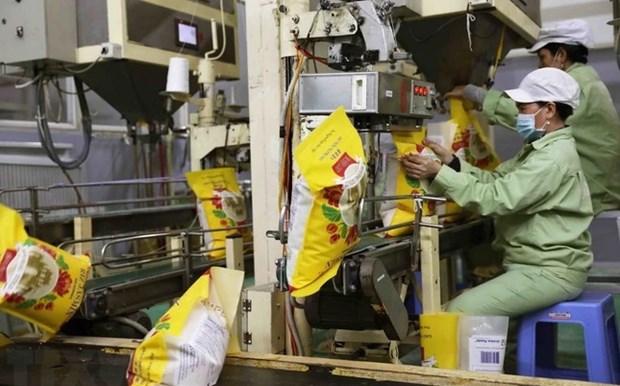Big opportunities for rice exports in 2024
Positive prospects are forecast for Vietnam’s rice export in 2024, with bright signs in both market and price.
Positive prospects are forecast for Vietnam’s rice export in 2024, with bright signs in both market and price.
Last year, Vietnam continued to be one of the top three rice exporters in the world, accounting for about 15% of total global rice exports.
Specifically, the country shipped 8.1 million tonnes of rice abroad, earning 4.6 billion USD, up 14.4% in volume and 35.3% in value year-on-year
Nguyen Thi Huong, General Director of the General Statistics Office under the Ministry of Planning and Investment, cited the US Department of Agriculture’s forecast data as saying that global rice production in the 2023-2024 crop year will reach nearly 518 million tonnes, while total consumption will be 525 million tonnes. It means that the world will face a shortage of about 7 million tonnes of rice in 2024.
This will create opportunities for rice exporters, including Vietnam, Huong said, adding that this year, Vietnam can fully ensure supply to export the same volume of rice like in 2023, while ensuring food security.
The global rice supply is forecast to no longer be abundant when supply from India, which accounts for 40% of the world rice export, will reduce by 4 million tonnes compared to the previous crop. Other markets such as the Philippines, Indonesia, Thailand and Cambodia are also predicted to reduce output due to the impact of the El Nino phenomenon and climate change.
Nguyen Anh Son, Director of the Import-Export Department under the Ministry of Industry and Trade, forecast that rice prices will increase in 2024 due to tightened supply.
In January, Vietnam earned 362 million USD from shipping rice abroad, up 7% year-on-year.
Regarding challenges in 2024, according to assessments of Vietnamese trade offices abroad, although Vietnamese rice has gained a firm foothold in many markets, it faces increasingly fierce competition with Thai rice. Therefore, businesses are advised to continue improving the quality of exported rice, diversifying types, and ensuring there are no violations of regulations on pesticide residues.
At the same time, there needs to be systematic promotion strategies in terms of brands, especially for high-quality rice./.









